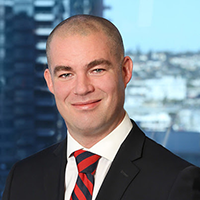
By Andrew A. Servais
Wingert, Grebing, Brubaker & Juskie, LLP
 On July 15, 2020, the American Bar Association (“ABA”) Standing Committee on Ethics and Professional Responsibility issued Formal Opinion 493 (“Opinion 493”) to “offer guidance on the purpose, scope, and application” of Rule 8.4(g), which “prohibits a lawyer from engaging in conduct related to the practice of law that the lawyer knows or reasonably should know is harassment or discrimination on the basis of various categories, including race, sex, religion, national origin, and sexual orientation.” (Opinion 493 at p. 1.)
On July 15, 2020, the American Bar Association (“ABA”) Standing Committee on Ethics and Professional Responsibility issued Formal Opinion 493 (“Opinion 493”) to “offer guidance on the purpose, scope, and application” of Rule 8.4(g), which “prohibits a lawyer from engaging in conduct related to the practice of law that the lawyer knows or reasonably should know is harassment or discrimination on the basis of various categories, including race, sex, religion, national origin, and sexual orientation.” (Opinion 493 at p. 1.)
In 2018, California adopted revised Rules of Professional Conduct, including Rule 8.4.1 which prohibits unlawful harassment, discrimination or retaliation against “persons on the basis of any protected characteristic.” Importantly, a lawyer “knowingly permits” discrimination under Rule 8.4.1 by failing “to advocate corrective action where the lawyer knows of” a discriminatory “practice that results in the unlawful discrimination or harassment.” (CRPC 8.4.1(c)(2.)
The ABA Model Rules, while not binding in California, are persuasive authority when interpreting the California Rules of Professional Conduct. Opinion 493 should be nothing new to California lawyers because it is well settled that “[o]bjectifying or demeaning a member of the profession, especially when based on gender, race, sexual preference, gender identity, or other such characteristics, is uncivil and unacceptable.” (Briganti v. Chow (2019) 42 Cal.App.5th 504, 511.)
Unfortunately, these issues continue to hound the country and the legal profession in 2020. The authors of Opinion 493 note that “[t]he police-involved killing of George Floyd and the unprecedented social awareness generated by it and other similar tragedies have brought the subject of racial justice to the forefront, further underscoring the importance of Rule 8.4(g) and this opinion.” (Opinion 493 at p. 1, fn.2.)
Every lawyer is an officer of the court, advocate, counselor and “a public citizen having special responsibility for the quality of justice.” See ABA Model Rules of Prof. Cond. Preamble at [1]. As Opinion 493 confirms, besides “being advocates and counselors, lawyers also serve a broader public role.” Thus, we “should further the public’s understanding of and confidence in the rule of law and the justice system because legal institutions in a constitutional democracy depend on popular participation and support to maintain their authority.” (Opinion 493 at p. 1.)
The need for California lawyers to set a standard for the public is more important than ever. For much of 2020, California lawyers – like others – have struggled with whether to send their children back to school, with access to safe childcare, with caring for vulnerable family members and attempting to balance these challenges with their ability to manage their practices during a historical economic downturn.
Now is not the time to continue the same discrimination against fellow lawyers that has been thoroughly documented in the legal profession. (See, e.g., Opinion 493 at p. 7 [“Preventing sexual harassment is a particular objective of Rule 8.4(g)”], fn. 29 citing Stephen Gillers, A Rule to Forbid Bias and Harassment in Law Practice: A Guide for State Courts Considering Model Rule 8.4(g), 30 GEO. J. LEGAL ETHICS 195, 200 (2017) (noting that decisions and surveys cited overwhelmingly “disclose that the targets [of bias and harassment] are predominantly women”); Wendy N. Hess, Addressing Sexual Harassment in the Legal Profession: The Opportunity to Use Model Rule 8.4(g) to Protect Women from Harassment, 96 U. DET. MERCY L. REV. 579, 582 (2019) (noting conservatively that anestimated “25% of women in the legal workplace have reported unwanted sexual harassment”); Opinion 493 at fn. 43 citing In re Thomsen, 837 N.E.2d 1011 (Ind. 2005) (publicly reprimanding lawyer for filing a petition in a divorce action arguing that couple’s children were put in “harm’s way” by wife’s association with an African-American man); In re Charges of Unprofessional Conduct, 597 N.W.2d 563 (Minn. 1999) (prosecutor disciplined for filing motion seeking to prohibit defendant’s counsel from including a lawyer of color as part of the defense team “for the sole purpose of playing upon the emotions of the jury”); People v. Sharpe, 781 P.2d 659, 660, 661 (1989) (prosecutor disciplined for exhibiting racial prejudice against Latinos by stating, in reference to two Latino defendants, that he did not “believe either one of those chili-eating bastards”).
Especially in these challenging times, California lawyers must redouble their efforts to comply with and discharge their ethical duties to each other and the public by avoiding conduct that violates Rule 8.4.1. Importantly, this may require attorneys to proactively advocate for corrective action in response to unlawful discrimination or harassment.